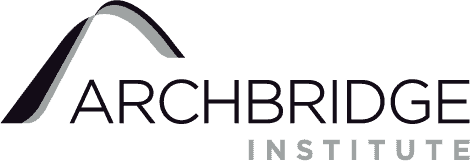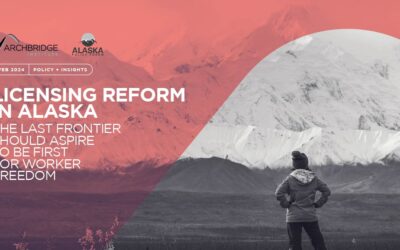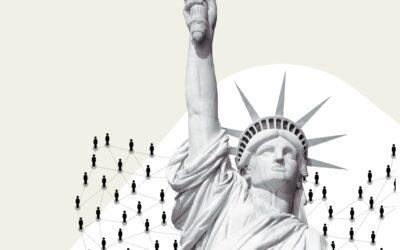Issues
At the Archbridge Institute, we bring a fresh perspective to academic research
by encouraging a multidisciplinary approach to better understand
the nature of economic mobility.
Make a Donation
Entrepreneurship, Innovation, and Job Creation
For most, a job is still the best way to climb the income ladder. In addition to providing income, jobs offer opportunities to gain skills, knowledge, and experience as well as grow social and professional networks that enable people to flourish, perhaps even by creating something new themselves. Innovators and entrepreneurs play a crucial role in maintaining and expanding these opportunities.
Economic and Social Mobility
To the extent that the American Dream can be quantified, intergenerational economic mobility has become the quintessential data point. To what extent are people able to exceed their parents income as adults? How should we measure that and have these measurements changed over time? Are there trends we can observe in these areas? This section explores these questions in precise detail.
Education and Skill Development
Doing productive work, meeting the needs of the market, or pushing toward the next innovation are often results of well developed human capital. That means developing and maintaining both more formal cognitive skills and less formal social or “soft” skills. Both are important aspects of ensuring that individuals have the space to develop the competencies they need both in education and in the labor force.
The American Dream
The Dream of America is one where every person, no matter their background, is free to live a better, richer, and fuller life. This section explores how that idea is understood today, using a combination of polling, data, and insights from contemporary strivers seeking to build and live their own American Dreams.
Meaning and Existential Agency
Building on the commitment to a multidisciplinary approach to questions of economic mobility and human flourishing, this section combines cutting edge research and public polling to bring the tools of psychology into conversation with those of economics to provide a richer picture of these concepts.
Social Capital and the Independent Sector
While sound public policies are important, there is a limit on what government policy can achieve. Ultimately, true transformation and flourishing is discovered and lived at an individual level. Personal relationships of reciprocal responsibility are an essential part of truly flourishing. Better understanding, facilitating, and highlighting the people and institutions engaged at this level of engagement is a key part of understating the puzzle of human flourishing.
Recent Studies
Reforming Mississippi’s Subsidized Childcare Towards Marriage Neutrality
Click here to open the PDF in a new tab. Why Welfare Has Marriage Penalties Welfare has marriage penalties because the eligibility threshold for programs does not account for both adults’ ability to earn money in a family unit. The eligibility threshold adjusts...
Licensing Reform in Alaska
Click here to open the PDF in a new Tab. Why Does Occupational Licensing Matter in the Last Frontier? As far as official barometers of Alaska’s labor market go, the state is near the national average. According to the Bureau of Labor Statistics, in December 2023 the...
Social Mobility in the 50 States
Click here to open the PDF in a new tab. Overview When people think of the American Dream, they consider the ability to better one’s life and achieve one’s goals. They are either directly or indirectly speaking about social mobility. In this index, we examine...
The Archbridge Institute is a non-partisan, independent, 501(c)(3) public policy think tank. Our mission is to lift barriers to human flourishing.
Archbridge Institute
1367 Connecticut Avenue NW, Suite 200,
Washington, DC 20036




